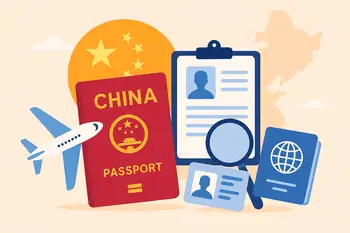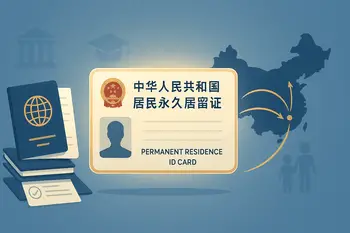
This guide will walk you through the necessary steps to ensure you successfully claim social insurance payments when leaving China.
When planning to leave China, one of the most important aspects to consider is how to claim your social insurance payments.
Whether you are an expatriate returning to your home country or a Chinese national moving abroad, understanding the process of claiming your social insurance benefits is crucial.
Social insurance in China includes five major types of insurance: pension, medical, unemployment, work-related injury, and maternity.
Each of these insurances has its own set of rules and procedures for claiming payments upon leaving the country.
Understanding Social Insurance in China
Overview of the Social Insurance System
China’s social insurance system is mandatory for all employees, both local and foreign.
It covers five major areas:
- Pension Insurance: Contributions made by both the employer and employee, providing financial support upon retirement.
- Medical Insurance: Covers healthcare expenses, including hospital visits, surgeries, and medication.
- Unemployment Insurance: Offers financial assistance if you lose your job involuntarily.
- Work-Related Injury Insurance: Provides compensation for injuries sustained at work.
- Maternity Insurance: Covers expenses related to childbirth and maternity leave.
Contribution Requirements
Both employers and employees are required to contribute to social insurance.
The contributions are calculated based on the employee’s monthly salary, with the specific percentage varying by region.
Typically, the employer’s contribution is higher than the employee’s, and all contributions are managed by the local Social Security Bureau.
Steps to Claim Social Insurance Payments When Leaving China
1. Notify Your Employer and Social Security Bureau
The first step in claiming your social insurance payments is to inform your employer of your intention to leave China.
Your employer will need to terminate your social insurance account and provide you with the necessary documentation to proceed with the claim.
It is also essential to contact the local Social Security Bureau to notify them of your departure and to understand the specific requirements for your claim.
2. Gather Necessary Documentation
To successfully claim your social insurance payments, you will need to gather the following documents:
- Employment Termination Certificate: Provided by your employer, this document confirms the end of your employment contract.
- Social Insurance Payment Record: This record, which can be obtained from the Social Security Bureau, details all the contributions made to your social insurance account.
- Personal Identification: A valid passport or ID card is required.
- Bank Account Information: A Chinese bank account where your payments will be deposited. Alternatively, you may need to set up a bank account in your home country if direct international transfers are allowed.
3. Submit Your Application
Once you have all the necessary documents, you can submit your application to the local Social Security Bureau.
The application process may vary slightly depending on the region, but it typically involves filling out an application form and submitting it along with your documents.
4. Processing Time and Follow-Up
The processing time for social insurance claims can vary, but it usually takes several weeks to a few months.
It is important to follow up with the Social Security Bureau regularly to ensure that your application is being processed and to provide any additional information if requested.
5. Receiving Your Payments
Once your application is approved, the payments will be deposited into the bank account you provided.
It is crucial to ensure that your bank account remains active and that you can access it from your home country.
If you are returning to a country where Chinese banks do not operate, you may need to make arrangements for international transfers.
Special Considerations for Expats
Refunds for Pension Contributions
For expatriates who do not plan to return to China, it is possible to request a refund of the pension contributions.
However, this process can be complicated, and it is advisable to seek assistance from a professional or consult with the Social Security Bureau for detailed guidance.
Transferring Social Insurance Benefits
In some cases, it may be possible to transfer your social insurance benefits to another country, particularly if there is a bilateral agreement between China and your home country.
These agreements allow for the transfer of pension and other social insurance benefits without losing the contributions you have made while working in China.
Tax Implications
It is important to consider the tax implications of receiving social insurance payments after leaving China.
Depending on your home country’s tax laws, you may be required to pay taxes on these benefits.
Consulting with a tax advisor familiar with international tax laws can help you navigate this complex area.
Common Challenges and How to Overcome Them
Language Barrier
The language barrier can be a significant challenge when dealing with the Social Security Bureau, as most of the documentation and communication will be in Chinese.
It may be helpful to enlist the services of a translator or a professional agency that specializes in assisting expatriates with social insurance claims.
Incomplete Documentation
One of the most common reasons for delays in processing social insurance claims is incomplete documentation.
Ensure that you have all the required documents before submitting your application and double-check the information provided.
Delayed Payments
Delayed payments can occur due to administrative issues or errors in the application.
Regular follow-up with the Social Security Bureau and maintaining open communication with your employer can help prevent or resolve these delays.
Conclusion
Navigating the process of claiming social insurance payments when leaving China can be complex, but with proper preparation and attention to detail, it is entirely manageable.
By following the steps outlined in this guide, you can ensure a smooth transition and secure the benefits you are entitled to.


